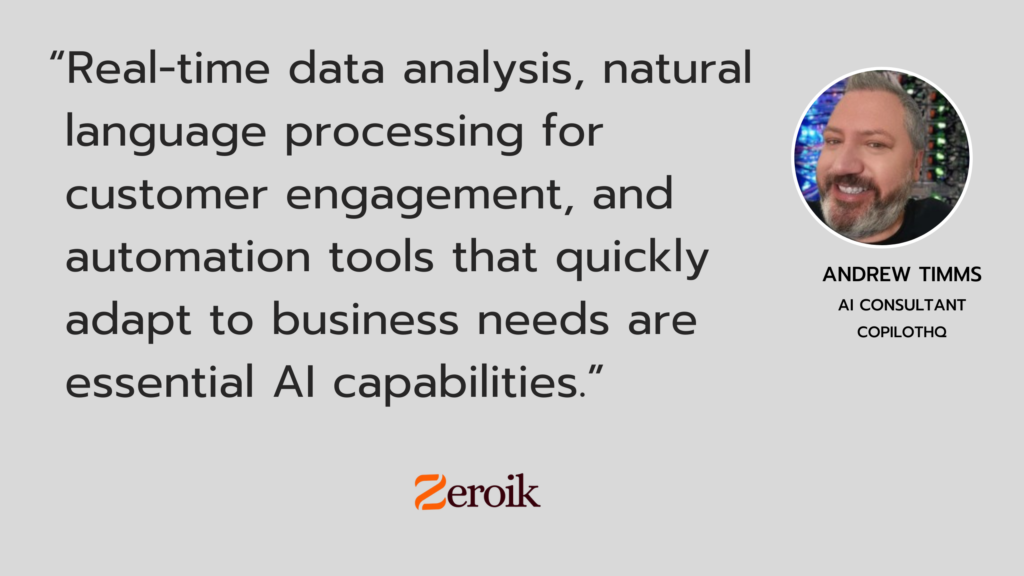Andrew Timms, AI Consultant at CopilotHQ, explains that SMEs and startups often struggle with AI adoption due to limited data, unclear strategies, and resource constraints. To overcome these barriers, businesses should start small, focusing on specific problems that provide measurable value. Prioritizing AI investments in areas like automation and customer engagement ensures a higher return on investment. Cost-effective solutions, such as cloud-based AI tools and chatbots, enable startups to leverage AI without requiring large teams or budgets. As AI capabilities like real-time data analysis and automation become essential for competitiveness, businesses that embrace these technologies early will gain a significant edge.
What are the biggest barriers SMEs and startups face when adopting AI, and how can they overcome them?
Many SMEs and startups face challenges such as limited data, unclear strategies, and resource constraints. Starting small with a clear, focused problem helps overcome these issues.
How should early-stage companies prioritize AI investments to maximize ROI?
Focus on projects that address clear business needs, like reducing repetitive tasks or improving customer interactions. Begin with a small, measurable pilot and scale from there.

What are some lightweight, cost-effective AI solutions that startups can implement without large teams or budgets?
Cloud-based services and pre-built tools can work well. For example, chatbots for customer support or simple automation tools for routine tasks can be implemented without a large team.
What AI capabilities will soon become essential for businesses to remain competitive?
Look for real-time data analysis, natural language processing for customer engagement, and automation tools that can quickly adapt to business needs.
Can you share real-world examples of AI driving scalability and efficiency?
Many businesses are already using chatbots to manage customer queries and automation for routine tasks, allowing staff to focus on higher-value work. Retailers, for instance, use AI for inventory management and demand forecasting.
What AI-driven operational efficiencies have provided the highest impact?
Automating repetitive tasks and using data insights to improve decision-making have proven to be high-impact measures.






